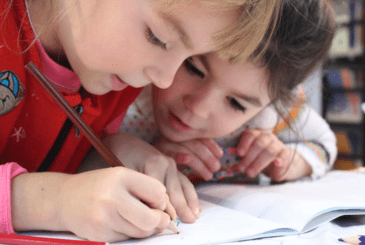
For many Families, COVID-19 has dramatically altered the routines and rituals that, when stitched together, make up the dependable tapestry of our daily life.
Their absence over the last few months, as life has twisted and turned, has revealed just how incredibly important they are for both adults and children. Routines help us to relax and provide us with a sense of security, control and stability, by creating a feeling of order in the chaos of everyday life. Rituals, such as childcare drop-off and interaction with other friends and Families also give us a sense of belonging – to Family and community.
“Nobody is immune to the stress that comes with a pandemic and related quarantining. Children, however, may be at particular risk. Living in a universe that is already out of their control, they can become especially shaken when the verities they count on to give the world order – the rituals in their lives, the very day-to-dayness of living – get blown to bits”, explained Ezra Golberstein, a health-policy researcher at the University of Minnesota.

“For us as a community, Toddlers and young children need our support the most through these situations” said Brad Morgan of Emerging Minds.
So how, as a community, do we provide this support to children?
By listening to children, being engaged with them and working to inject familiar routine back into their daily life. For many Families, this means returning to the stable routines found in childcare.
“Children in particular have little control over their world, so they count on consistent routines to provide them with security and a sense of normalcy” continued Brad Morgan. With many Families coming to terms with their ‘new normal’ the absence of these routines has left many with a sense of fear and uncertainty, leading to stress and anxiety.
Children, like the rest of us, handle change best if it is expected and occurs in the context of a familiar routine – such as the routine of attending childcare and engaging and socialising with their friends – friends they have missed seeing due to lockdowns and social distancing requirements.
A predictable routine allows children to feel safe, and to develop a sense of mastery in handling their lives. As this sense of mastery is strengthened, they can tackle larger changes – like learning to use a knife and fork, or in the case of our current environment, changing social interaction rules and the introduction of face masks.
While helping children feel safe and ready to take on new challenges and developmental tasks would be reason enough to offer them the daily structure found in childcare, it has another important developmental role as well. Early childhood learning is a vital component in a child’s development and an important support network for Family wellbeing. “We all know that the first 1,000 days in a child’s life have a profound effect on their health, development and ability to learn – but it can also have an effect on their lifetime earnings” said CEO of UNICEF Australia, Tony Stuart.
A 2019 study by the Front Project and PWC calculated participation of children in quality, early learning delivers a return on investment of 2:1 to the economy. If children fall behind in the first five years of life – in their development of a multitude of necessary life-long skills they learn as part of a well-rounded early learning curriculum – this ‘lost education’ is incredibly difficult for them to catch up.
Although many Families have taken up home-learning with gusto over the past few months, children require opportunities for connection and undivided attention to learn and grow. “The structure and routine of an early learning curriculum teaches children how to constructively manage themselves and their environments” explains Dr Laura Markham of Aha Parenting – an incredibly important skill to develop when faced with an uncertain and changing future.
Can childcare help parents navigate COVID-19 too?
Access to early childhood education for Families, also provides many benefits for parents, whose wellbeing is critical to the wellbeing of the child.
“During times of crisis such as now, childcare provides mental health respite for parents who are under stress. It provides time for parents to work without interruption, continue to seek employment or further training, provides parenting support and resources, and a network of carers and other parents to lean on” said CEO of UNICEF Australia, Tony Stuart.
And the good news for Families keeps coming – when a child does not know what to expect (such as when they have no consistent routine), their internal alarms go off. “Children knowing what is expected cuts down on parenting struggles” says Jodi Mindell, child Psychologist and author of Sleeping through the Night – a win for all involved!
So, what does this mean for Educators and Providers?
For Child Care Providers and Centre Managers this means an increase in the programming required and a concentrated focus on helping children (and Families) to navigate a new and constantly changing set of circumstances. It also means that they’re going to need to re-prioritise daily tasks to accommodate this extra workload.
Right now, it’s about Families and Child Care Providers working in partnership “to build resilience in our children, Families and communities, to navigate through the compounded crises caused by COVID-19 together,” said Director of the national positive parenting network Triple P, Carol Markie-Dadds.
So how can we help?
With an abundance of literature online, our team have read and compiled a range of practical resources to assist Educators and Families to navigate the effects of COVID-19 as it relates to young children’s wellbeing:
- This video provides practical tips on how to manage routines for children throughout COVID-19.
- With the use of face masks becoming more prevalent throughout the community, it’s important that we understand that children will have mixed and varying reactions when they see people wearing face masks. Here is a great resource for how to use play to support and talk to children about face masks.
- Raising Children have created a fantastic hub of resources here to assist Educators and Families deal with the constantly changing situation surrounding COVID-19.
- Here the Gidget Foundation provides practical tips on how to speak to children about COVID-19 and respond to their many questions.
- Here is a great resource with practical information on the use of play to strengthen the child-parent relationship and promote children’s mental health.
Looking for greater support?
We can provide that to. Our team are ready to support and relieve the administrative pressure from the day to day workload of Centre Managers and Providers – giving them the ability to focus on what’s important during this period.
“It’s about giving them back that all important time in their day’ said Scott Monaghan, Enrolment Hub Director. ‘From entering new and changed enrolment data, to auditing and submitting attendance, sending Family statements and assisting with entering manual payments – whatever it is they need help with, we have the time and experience to take it off their hands’.
Enrolment Hub – Your Partner
Enrolment Hub offers a comprehensive range of services, including childcare administration, childcare management services, childcare enquiry, childcare centre enrolment, childcare marketing solutions, childcare debt support, new child care centre support, childcare software management, childcare centre resources, vacation care management and childcare centre consultants
Why not get in touch with the team today and see how we can partner together. You can contact Scott Monaghan directly at scottm@enrolmenthub.com.
Share